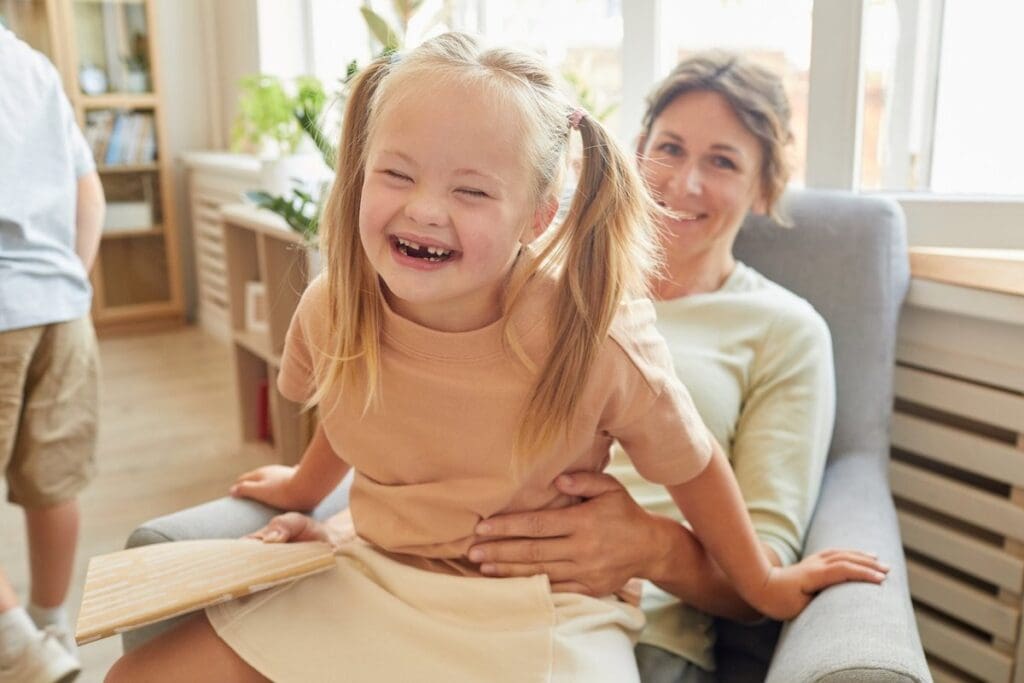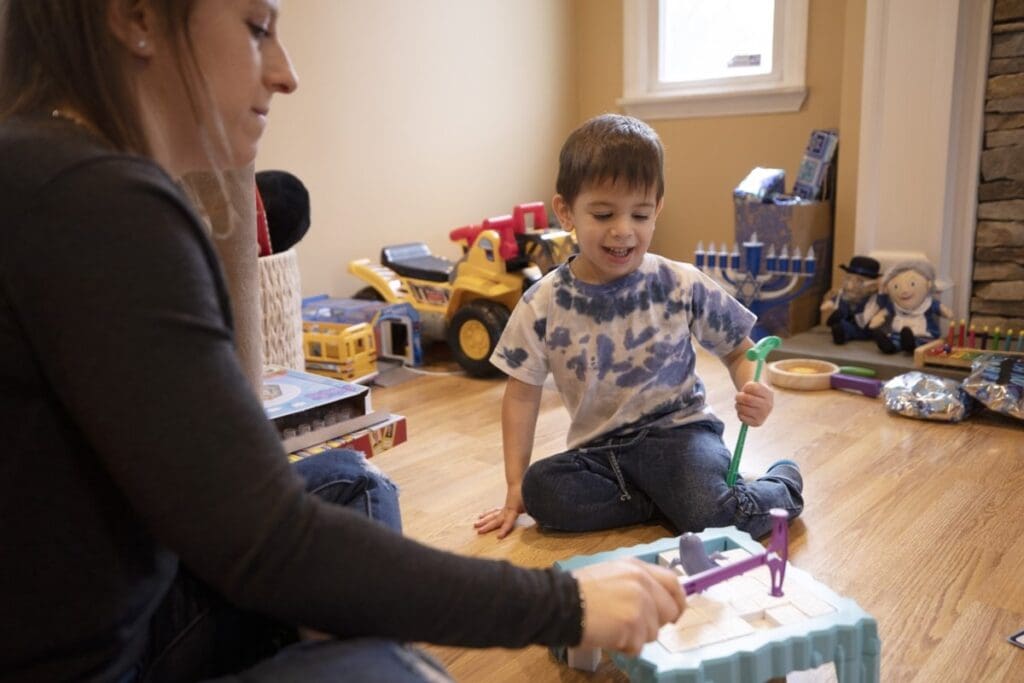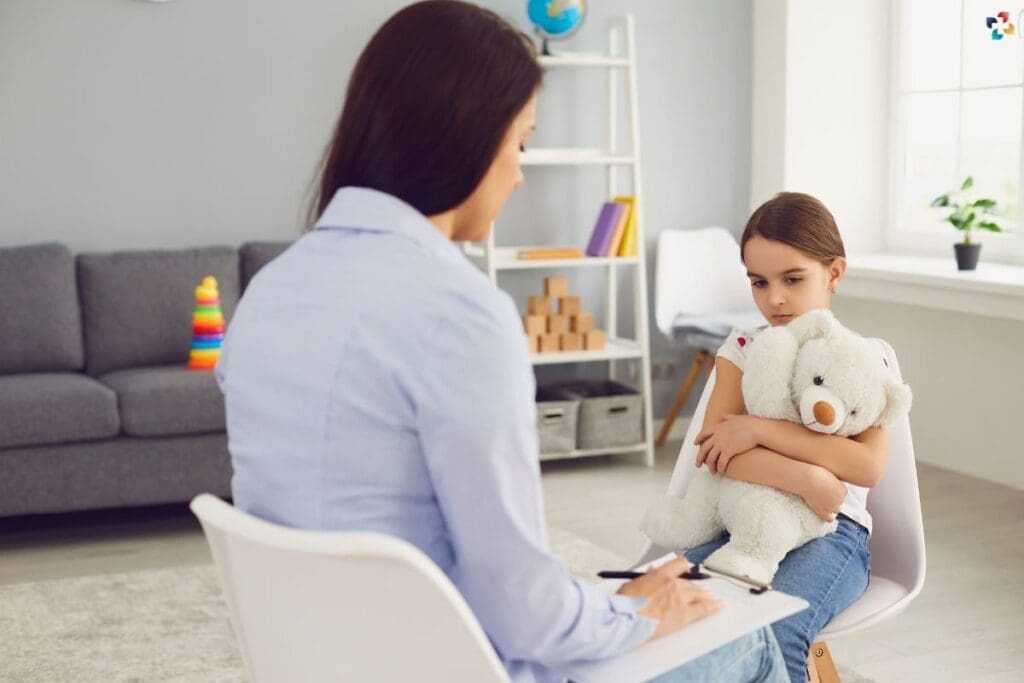Helping a child with developmental delay needs active parents and set routines. The U.S. Centers for Disease Control and Prevention says about 1 in 6 kids in the U.S. face developmental delay. This shows how key it is to know how to help at home.

Starting early can really help a child grow. Parents can work with doctors and use resources to help their child grow. For more tips on raising a child with developmental delays and disabilities, there are more strategies and support.
Key Takeaways
- Understand the signs of developmental delay in children.
- Learn effective home strategies to support children with delayed development.
- Discover the importance of early intervention and parental involvement.
- Explore resources and support systems for families affected by developmental delays.
- Work with healthcare providers to create a personalized plan for your child.
Understanding Developmental Delay in Children
It’s key for parents and caregivers to grasp developmental delay. This happens when a child misses milestones in their expected time. It can affect their thinking, social skills, speech, and physical abilities.

Common Types of Developmental Delays
There are several types of developmental delays. Cognitive delay makes it hard for a child to think and learn. Social-emotional delay affects how a child interacts and feels.
Speech-language delay makes it tough for a child to communicate. Fine and gross motor delay impacts their physical skills, like coordination.
Recognizing Early Warning Signs
Spotting early signs of developmental delays is vital. Look out for delayed speech, trouble with social interactions, and physical challenges. For example, a child with cognitive delay might find it hard to solve problems.
If you notice these signs, talk to a healthcare professional. Early help can greatly improve a child’s future. It’s important to watch a child’s progress and act quickly if needed.
Knowing about developmental delays and their signs helps parents and caregivers. They can then offer the right support and help a child succeed.
The Critical Impact of Early Intervention
Early intervention is key for kids with developmental delays. It’s a big deal for families and doctors. Delays can mess with a child’s motor skills and how they talk.
About 1 in 6 kids in the U.S. has a developmental delay, says the U.S. Centers for Disease Control and Prevention. This shows how common it is and why we need good support.
Prevalence Statistics in the United States
Many kids face developmental delays. The CDC says a lot of kids are affected. It’s important for parents and caregivers to know the signs and why early help is key.
- Approximately 1 in 6 children has a developmental delay.
- Delays can show up in speech, motor skills, and thinking.
- Spotting and helping early is vital for kids with delays.

Evidence-Based Benefits of Home Support
Studies show early home support helps a lot. Parents can do special activities at home. This helps their child’s delayed development and improves their life.
- Helps with motor skills through exercises.
- Boosts language skills with reading and games.
- Improves social skills through play and talking.
Knowing about what is a developmental delay is and early help can help parents. We suggest families work with doctors to make a support plan.
Establishing a Structured Home Environment
Creating a structured home is key for kids with developmental delays. It gives them a sense of safety and what to expect. A tidy home helps them manage their day better, boosting their growth.
Creating Consistent Daily Routines
Having set daily routines is vital for a structured home. A regular schedule for meals, homework, and sleep makes kids feel secure. It’s great for kids with developmental issues as it lowers anxiety and makes changes easier.
To set up good daily routines, try these tips:
- Make a visual schedule to show your child the day’s plans.
- Be clear about what’s expected during changes.
- Be flexible sometimes, as strict rules can be too much.
Designing Sensory-Friendly Spaces
Creating spaces that are easy on the senses is also important. Kids with mental delay or developmental delays often struggle with too much stimulation. This can make their environment feel too much.
To make a space friendly for the senses:
- Keep things tidy and quiet.
- Use soft lights to calm the atmosphere.
- Add activities that help with sensory integration, like playdough or swings.
By mixing daily routines with sensory-friendly areas, parents can help their kids do well at home. Knowing what is delay and how it affects kids helps tailor these efforts to their specific needs.
Physical Activities to Support Developmental Delay
Physical activity is key for kids with developmental delays. It boosts their motor skills, coordination, and health. We suggest mixing different activities into their daily life to meet their needs.
Fine Motor Skill Exercises for Daily Practice
Fine motor skills help with daily tasks needing precision. To improve these skills, try these exercises:
- Playing with playdough to strengthen hand muscles and improve dexterity
- Using tweezers or small tongs to pick up small objects, improving finger coordination
- Doing activities like drawing, colouring, and puzzles to enhance hand-eye coordination
- Buttoning and unbuttoning clothes to practice fine motor movements
These activities boost fine motor skills and make learning fun for kids.
Gross Motor Activities to Build Coordination
Gross motor skills involve big muscles and are key to movement and balance. To help develop these skills, try these activities:
- Running, jumping, and skipping to boost leg strength and coordination
- Playing ball games like soccer, basketball, or catch to improve hand-eye coordination and teamwork
- Climbing structures or ladders to build upper body strength and confidence
- Balance exercises, such as standing on one foot or using a balance beam to improve stability
Adding these activities to daily routines can greatly improve a child’s gross motor skills and fitness.
Combining fine and gross motor activities helps kids develop physically. It’s important to match activities to the child’s age, ability, and interests. This keeps them engaged and motivated.
Enhancing Language and Communication Skills
Children with developmental delays can greatly benefit from special strategies to improve their language and communication. Good communication is key to their social, emotional, and thinking skills. Parents and caregivers can help a lot by adding certain activities to their daily lives.
Interactive Reading and Storytelling Techniques
Interactive reading and storytelling are great ways to boost language skills in kids with developmental delays. These activities help kids love reading and connect with language in a deep way. Parents can make reading fun by asking questions, asking kids to guess what’s next, or pointing out objects and characters.
Storytelling can be more exciting with different voices, gestures, and stories that kids can relate to. This helps kids improve their listening, understand stories, and learn new words.
Music, Songs, and Verbal Games
Music, songs, and verbal games are also great for improving language and communication. Singing songs with simple lyrics helps kids with sound awareness and memory. Music and songs can also teach new words and encourage kids to speak better.
Verbal games like rhyming, word association, and “I Spy” make learning fun and boost thinking and language skills. These games get kids’ brains working, helping them think creatively and grasp language better.
By adding these strategies to daily routines, parents and caregivers can help kids with developmental delays get better at talking and communicating. It’s important to be patient and keep trying, as every child learns at their own pace.
Building Social and Cognitive Abilities Through Play
Play is more than just fun for kids with developmental issues. It’s a key way for them to grow socially and mentally. Through play, kids learn important skills that help them in many ways.
Play activities are made just right for each child’s age and skill level. They’re both fun and a bit of a challenge. By adding play to their daily lives, parents help create a space where kids can grow and learn.
Role-Playing Games for Social Development
Role-playing games are great for kids with developmental delays to improve their social skills. These games help kids interact, understand others, and learn about different roles. For instance, playing “store” or “house” teaches kids about sharing and working together.
Examples of Role-Playing Games:
- Pretend cooking or baking
- Playing doctor or nurse
- Engaging in pretend shopping
According to a Medical Expert “Play is the answer to the question, ‘How does anything new come about?'” (
The essential thing is not to stop questioning. Curiosity has its own reason for existence.
). This shows how vital play is for growing both mentally and socially.
Problem-Solving Activities for Cognitive Growth
Problem-solving activities challenge kids and help them grow mentally. These can be simple puzzles or more complex tasks that need deep thinking. Solving problems helps kids improve their analytical skills, memory, and critical thinking.
Examples of Problem-Solving Activities:
- Jigsaw puzzles
- Sorting games
- Strategy games like chess or checkers
By making these activities part of their daily routine, parents give kids the tools to face developmental challenges. As “The way we play is the way we learn and grow.” Play is a key part of a child’s growth journey.
Conclusion: Monitoring Progress and Partnering with Specialists
Supporting a child with developmental delay needs a full plan. This includes watching their progress and working with experts. It’s important to know what developmental delay is and to spot its signs early.
Parents can make a big difference by creating a structured home and doing activities that help with growth. This includes physical, language, and social skills. It’s also key to keep an eye on how they’re doing and work with doctors.
Parental involvement is critical in helping a child grow and overcome delays. By teaming up with specialists and keeping a supportive home, parents can help their child reach their highest goals. Learning how to support a child with developmental delay is essential for their future success.
FAQ’s:
What is a developmental delay?
A developmental delay happens when a child doesn’t reach certain milestones on time. This can affect their thinking, social skills, speaking, and physical abilities.
How common are developmental delays in children?
Many children worldwide face developmental delays. The exact number varies based on the type of delay and the group studied.
What are the early warning signs of developmental delays?
Signs include trouble with speaking, motor skills, and social-emotional growth. These issues can show up early.
How can I help a child with developmental delay at home?
Create a routine at home. Add physical activities and play to boost language and social skills. This helps a lot.
What are some effective fine motor skill exercises for children with developmental delays?
Try puzzles, playdough, and finger games. These activities can be tailored for different ages and abilities to enhance dexterity.
How can I create a sensory-friendly space for my child?
Make a calm, comfortable area. Use soft lights, cozy seats, and reduce noise. This helps your child feel at ease.
What is the importance of early intervention for children with developmental delays?
Early help is key. It can greatly improve motor, language, and social skills in children with delays.
How can I enhance my child’s language and communication skills?
Use interactive reading, storytelling, music, and games. These activities can boost language and communication in children with delays.
What role does play have in developing social and cognitive abilities?
Play is vital for social and cognitive growth in children with delays. It helps with social skills and thinking through games and problem-solving.
How can I monitor my child’s progress and work with healthcare professionals?
Keep a close eye on your child’s progress. Work closely with healthcare experts. Regular checks and adjustments to support strategies are important.
REFERENCES:
- Liu, S. (2025). Early rehabilitation interventions for global developmental delay: Efficacy of home-based rehabilitation and family-centered care. Frontiers in Pediatrics.https://pmc.ncbi.nlm.nih.gov/articles/PMC12287077/
- Shin, J. Y., et al. (2016). The effects of a home-based intervention conducted by trained student teachers for young children with developmental delays: A randomized control trial. Asia-Pacific Journal of Public Health.https://pmc.ncbi.nlm.nih.gov/articles/PMC5764180/
- Skill Point Therapy. (2024, July 11). Effective developmental delay therapy: 6 proven methods.https://skillpointtherapy.com/effective-developmental-delay-therapy-6-proven-methods/


































